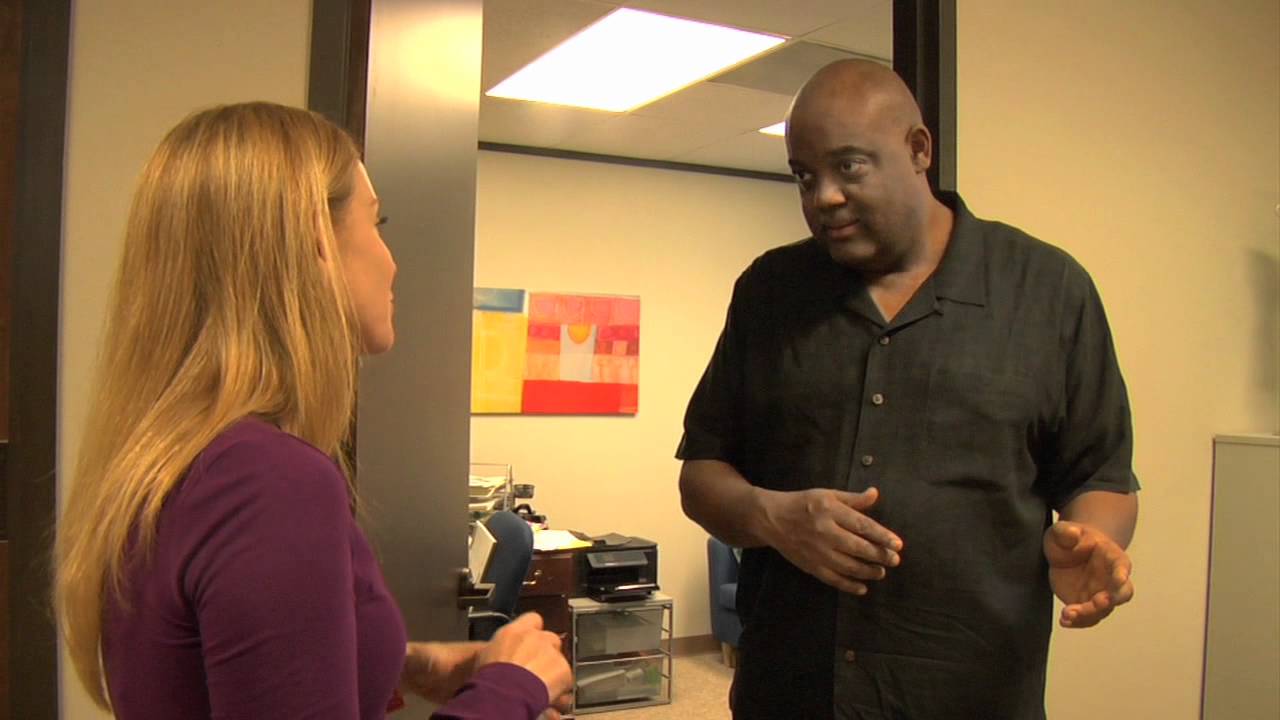From the very beginning of our talk, passion and enthusiasm illuminates from Darryl Roberts. Extremely articulate with the voice of a radio DJ, it is soon clear that this award-winning director has found his calling in the America The Beautiful documentary series, and we are talking about his third film which opens today, America The Beautiful 3: The Sexualization of Our Youth. He is known in the documentary world for making films about beauty and superficiality, and in this film, he specifically targets the media and its effect on society. Roberts is not making these films for just a paycheck, in fact it’s quite the opposite. During our exclusive interview, he tells me his plans to screen the film for free to anyone who wants to see it, and hopes that Emma Watson will be among those in the film’s audience. We begin:
I KNOW THIS IS THE THIRD INSTALLMENT IN YOUR DOCUMENTARY TRILOGY, BUT WHEN DID YOU FIRST BECOME INTERESTED IN THIS SUBJECT MATTER?
It started around October 2002, I was having dinner with a friend of mine at McDonald’s in Chicago and we were just talking about women and beauty, and that kind of stuff. From that conversation, I realized that beauty played a large part in how we relate to other people, which is just shallow and superficial. I remember asking him, why does beauty have to play such a big part of attraction? Relationships would be much deeper if we could get past that. Why are we obsessed with beauty? And that question, ‘Why are we so obsessed with beauty’ is what made me do the first documentary.
IN YOUR APPROACH TO THIS THIRD FILM, HOW DID YOU DECIDE ON THE TOPIC OF THE SEXUALIZATION OF YOUTH?
The American Psychological Association released a report on the sexualization of girls, and they made a statement that this level of sexualization is creating a mental health crisis. My first thought was [disbelief], so I kept reading the report and they talked about depression, low self-esteem, and eating disorders. About two weeks after [I read the report], some guy at a university made this flyer called “Ten Ways To Get Away With Rape.” He hung it in the bathrooms all over the campus of Miami University in Ohio, and initially [the administration] wouldn’t do anything about it, and that’s when I knew I wanted to do something. Things were getting out of hand.
EMBARRASSINGLY ENOUGH, IN COLLEGE, I WORKED AT AN ABERCROMBIE AND FITCH FOR A COUPLE OF WEEKS. I QUICKLY REALIZED IT WAS NOT THE TYPE OF WORK ENVIRONMENT I WANTED TO BE IN, AND I’M GRATEFUL YOU CALLED THEM OUT IN YOUR FILM.
This is what I want to tell people: We do have a voice. When you look at the protest that 17 year old Cali Linstrom did, Abercrombie now has reduced their sexualization in ads by 70%, they added larger sizes, and they’re totally committed now to being a socially responsible company. I thought it was important to show that they could do it, because 10 years ago they were seen as the worst perpetrators of sexualizing young girls, and if they could change, then we have hope for society.
What we’re doing now is throwing the parents into the child’s world so they can see the culture in which their child is living in.
TOTALLY, IT’S ONE THING TO ACCOMPLISH MAKING A FILM, BUT IT’S ANOTHER THING TO SEE THE EFFECTS OF YOUR MOVIE SO QUICKLY MAKE THIS CULTURAL CHANGE. AS A FILMMAKER, YOU MUST BE REALLY PROUD.
I’m going to be honest with you, the commitment from Abercrombie [is huge], they’re doing this big anti-bullying campaign and getting rid of the perfume in stores. Seeing that change in them, based on where they came from, was almost more gratifying than doing the movie itself.
OUT OF ANYONE IN THE WORLD, WHO WOULD YOU LIKE TO SEE THE FILM?
The actress, Emma Watson. She spoke at the U.N. three weeks ago. She did a campaign called “He For She,” which is the [same message] I had with this film. I want men to watch it and start to get more of an understanding of what women go through and start becoming allies for women.
I HEARD THAT THE PRESIDENT OF MONTE NIDO, CAROLYN COSTIN, IS ALLOWING PEOPLE TO SEE THE FILM IN THEATERS FOR FREE BECAUSE THE MESSAGE IS SO IMPORTANT.
I was doing a regular theatrical tour and back in May, Carolyn and her husband saw the film. They asked me about the film’s distribution [plan] and they told me they don’t think people will go to the movies if it costs $12, so they were like, ‘What if we made it so anybody who wanted to go, could go and it didn’t cost them anything?’ I thought that was a great idea so we made free premieres across the United States… 14 free screenings in the top 14 cities. I think their hunch is working because we’re almost full in all of them.
HAS ANYTHING CHANGED IN YOUR LIFE SINCE MAKING THE FILM?
Before doing the film, I didn’t realize how pervasive sexual assault and abuse towards women was; it’s just not something I’ve ever personally been exposed to. One of the goals I have with this film is to use it to bridge parents and children. What I’m seeing is when parents bring their children to these screenings, they have these conversations afterwards that, without seeing the film, may have been too awkward and not have ever come up in conversation. What we’re doing now is throwing the parents into the child’s world so they can see the culture in which their child is living in.
Morgan Rojas
Certified fresh. For disclosure purposes, Morgan currently runs PR at PRETTYBIRD and Ventureland.

